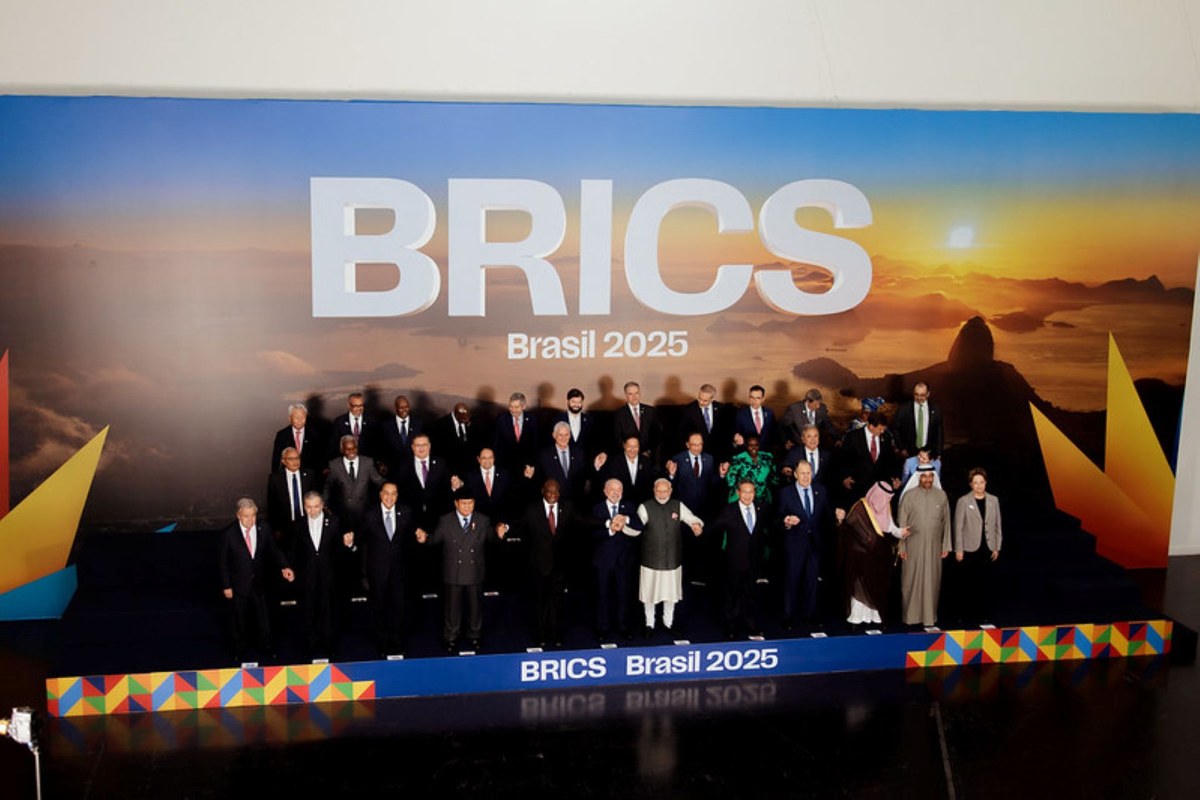BRICS leaders champion global effort for fair climate finance in historic Rio Declaration
At the Rio de Janeiro summit, the group commits to reforming the international financial system and endorses the COP30 Presidency’s goal to mobilize USD 1.3 trillion in climate finance for the Global South

From COP30/BRICS Press Room
On Monday, July 7, during the second day of the 17th BRICS Summit in Rio de Janeiro, Brasil, BRICS leaders made a landmark pledge to mobilize the international community to encourage the International Monetary and Financial System to adopt fairer and more effective measures to expand climate finance. The agreement was formalized during the second day of the 17th BRICS summit.
In the document, the group’s leaders reaffirmed multilateralism as essential to addressing the challenges posed by climate change, especially in the Global South. With optimism, they endorsed the “Baku to Belém Roadmap for USD 1.3 Trillion,” an initiative led by the COP30 Presidency aimed at scaling up climate finance for developing countries, and anticipated to be officially presented in October.
BRICS members highlighted the role of the UNFCCC (United Nations Framework Convention on Climate Change) as the primary channel for international cooperation on climate issues and reiterated their commitment to the "full and effective" implementation of the Paris Agreement. They also urged countries to revise and strengthen their Nationally Determined Contributions (NDCs) for 2030.
"Developing countries will be the most impacted by loss and damage. They also possess the fewest means to finance mitigation and adaptation. The Global South is capable of leading a new development paradigm without repeating past mistakes,” said Brazilian President Luiz Inácio Lula da Silva during the opening session.
To ensure accessible and sustainable climate finance in the Global South, the group emphasized the need for the availability of concessional resources "to support just transitions, based on nationally determined development priorities that integrate climate action with sustainable development,” the declaration states.
Imbalance between adaptation and mitigation finance
The leaders again underscored that, while developing countries contribute less to climate change, their populations are far more vulnerable to its impacts. They collectively stressed the urgent need to increase the share of finance directed toward adaptation—especially through public funding—to address the current imbalance between adaptation and mitigation finance flows in these regions.
“We emphasize that this imbalance has a disproportionately negative effect on developing countries, particularly on the most vulnerable segments of their populations. We call on developed countries to exponentially scale up their collective provision of climate finance for adaptation and to close adaptation gaps, including at least doubling 2019 levels of adaptation funding by 2025,” the BRICS declaration urged.
Structural change
The BRICS leaders reiterated their commitment to reforming the international financial architecture as a key condition to meet the specific needs of developing countries—such as access to technologies and climate solutions—by “directing the volumes of finance that developing economies urgently need for climate action.”
The group also called upon international financial institutions, including multilateral development banks, to align their operational models, channels, and instruments to respond more effectively to the deepening climate crisis and to eradicate poverty. The declaration further underscored the need for a strategic realignment of the private sector’s role in addressing climate change and acknowledged the importance of blended finance instruments to mobilize private capital and enhance the catalytic role of public funds.
Read the full declaration:
English version: Trad. Bárbara Menezes.
Proofreading by Enrique Villamil.